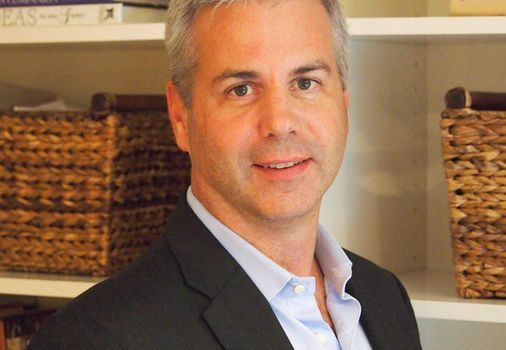Cambridge biotech startup based on Broad Institute technology launches with $75m
A new startup based on science from the Broad Institute of MIT and Harvard has raised $75 million to develop a new class of drugs that can chemically modify proteins to change their function. Although the drugs may be years away from clinical testing, if the approach works, it will have broad implications for many diseases.
Photys Therapeutics was founded late last year to develop a technology invented by Dr. Amit Choudhary at the Broad. The Cambridge-based startup formally launched on Thursday with $75 million in series A financing from life science-focused venture capital firms, including MPM Capital and Longwood Fund, as well as pharma giants Merck & Co. and Eli Lilly and Company.
In August 2020, Choudhary published a paper describing the creation of dumbbell-shaped small molecules that could be used to bring two specific proteins together. One end of the dumbbell sticks to a protein called a kinase and the other end sticks to a protein involved in disease.
Once brought together, the kinase “decorates” the adjacent protein with a chemical that changes its behavior, said Edward Holson, cofounder and chief scientific officer of Photys. That decoration — a process well known to biochemists as phosphorylation — is like “a switch that controls proteins,” he said. Sometimes that switch simply turns a protein on or off. Other times it’s more akin to a shipping label that tells the protein where it needs to go in a cell.
There are dozens of cancer drugs that inhibit kinases to stop the proteins from making the chemical decorations. “But we’ve never really been able to do the opposite — to put the decorations on in a precise way,” Holson said. “It really gives us more levers to control protein function.”
There are hundreds of kinases and thousands of ways that they can phosphorylate other proteins, suggesting potentially vast uses for the technology, which the startup calls phosphorylation-inducing chimeric small molecules, or PHICS.
Brian Fenton, chief executive of Photys, said that cancer is a major initial focus for the company, as well as immune, metabolic, and rare diseases. But he added that “it’s too soon to say” when his startup will have a drug ready for clinical testing.
Choudhary’s paper quickly attracted the attention of life sciences investors because several other biotech startups were already making their own dumbbell-shaped molecules called protein degraders. These drugs, which are being tested in clinical trials for cancer, bring two proteins together so that one can chemically mark the other one for destruction.
Lizzie Ngo, a principal at Longwood Fund and cofounder of Photys, said she was actively looking for other uses of dumbbell molecules beyond protein degradation when she came across Choudhary’s research. “We thought there was so much potential behind the technology,” she said.
Photys is based in the Cambridge Innovation Center, although Fenton said it is looking to move in the coming months to accommodate the company’s growing headcount, which is currently about 30.
Choudhary has several additional research papers in the works on new iterations and applications of the technology. He is also a researcher at Brigham and Women’s Hospital. Mass General Brigham Ventures — the venture capital arm of the hospital system — invested in Photys as well.
Ryan Cross can be reached at ryan.cross@globe.com. Follow him on Twitter @RLCscienceboss.








Gloss